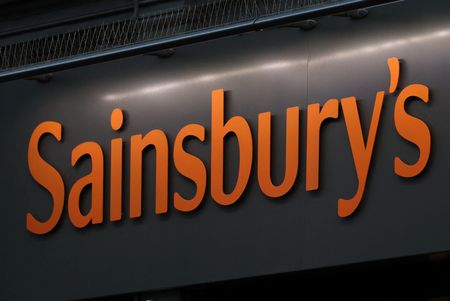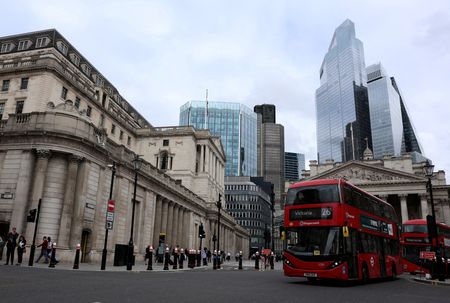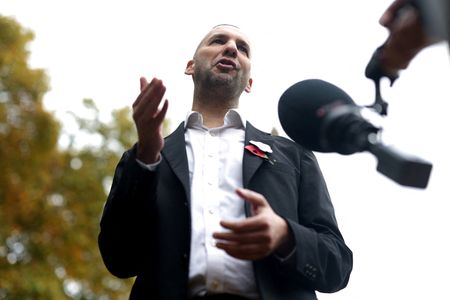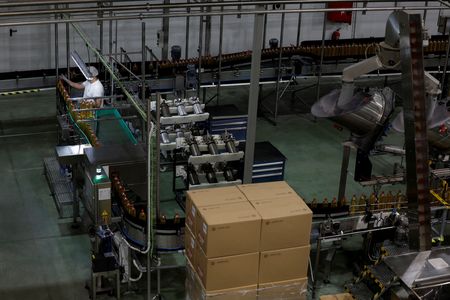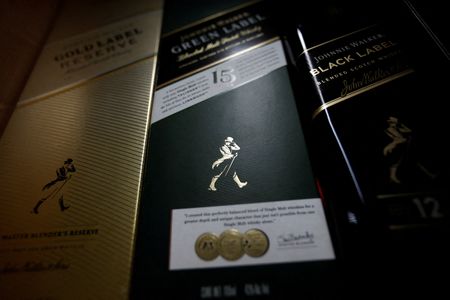By James Davey
LONDON (Reuters) -Sainsbury’s, Britain’s second biggest supermarket group, on Thursday followed industry leader Tesco in raising its full-year profit outlook after delivering a first half sales and profit performance ahead of its expectations.
Chief Executive Simon Roberts said Sainsbury’s offer had “never been stronger” and while the market remained highly competitive, “our momentum gives us real confidence as we head into Christmas”.
The upgrade confirmed that the two biggest supermarkets had outperformed the wider retail market with their focus on value at a time of weakening employment, still high inflation and concerns about tax increases in this month’s budget.
Tesco raised its full-year profit forecast last month.
The two have benefited from the continuation of the “dining in” trend, with consumers opting for premium supermarket products over a trip to a restaurant, partly to save cash – bad news for Britain’s beleaguered hospitality sector.
Sainsbury’s shares are up 23% so far this year, while Tesco’s are up 27%.
Sainsbury’s, whose UK grocery market share has grown to a near decade high of 15.3%, said it now expected to deliver retail underlying operating profit of “more than 1 billion pounds” for its year to March 2026 – ahead of previous guidance of “around 1 billion pounds” and the 1.04 billion pounds made in 2024/25.
Retail underlying operating profit was 504 million pounds in its first half to September 13, up 0.2%.
Retail sales, excluding VAT sales tax and fuel, rose 4.8% to 15.6 billion pounds, with like-for-like sales up 4.5%.
In April, Sainsbury’s set aside cash to maintain its competitive edge after a pledge of sustained price cuts from Asda, the number three player, which has been losing market share and is taking a hit to profit to re-set its business.
Sainsbury’s says it is winning market share thanks to a strategy of matching discounter Aldi’s prices on hundreds of key items and providing better prices for members of its popular Nectar loyalty scheme, financed by a programme of cost cuts.
(Reporting by James Davey; Editing by Kate Holton)

